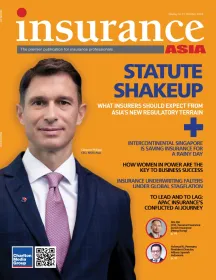
JFTC storms four big Japanese insurers for alleged cartel behaviour: Report
The insurers are suspected of using co-insurance policies as a mechanism for coordinating and fixing premiums.
The Japan Fair Trade Commission (JFTC) raided four major Japanese insurance companies – Tokio Marine & Nichido Fire Insurance Co., Sompo Japan Insurance Inc., Mitsui Sumitomo Insurance Co., and Aioi Nissay Dowa Insurance Co. – along with two of their agents, in suspicion of engaging in cartel behaviour, reported The Mainichi news agency.
This engagement in cartel behaviour violates the antimonopoly law of Japan.
READ MORE: Japan Fair Trade Commission raids 4 insurers over suspected cartel
JFTC has intensified its scrutiny of potential anti-competitive practices in the Japanese insurance industry. The suspicion centres around the adjustment of premiums in business insurance policies.
Specifically, these companies are alleged to have colluded in setting premiums for policies covering several large corporations and government entities, including Cosmo Energy Holdings, Cosmo Oil, Jera Co., Keisei Electric Railway, the Japan Organisation for Metals and Energy Security, the Tokyo Metropolitan Government, and Sharp Corp.
The insurers are suspected of using co-insurance policies – a common practice in corporate insurance to spread risk – as a mechanism for coordinating and fixing premiums. This practice can limit competition and lead to higher prices for consumers.
The JFTC's investigation, which began in August following initial probes by the Financial Services Agency (FSA), has now expanded to include specific policies sold to Tokyu Group and Sendai International Airport Co.
If the allegations are proven, the insurance companies could face significant penalties, including surcharges.
ALSO READ: Sompo Japan’s Chief steps down amdist Bigmotor misconduct
This action by the JFTC represents the first major antimonopoly law enforcement action against major general insurance firms in Japan over cartel allegations.
This case highlights the ongoing efforts of Japanese regulatory bodies to enforce antitrust laws and promote fair competition in the market.
The outcome of this investigation could have significant implications for the insurance industry in Japan, potentially leading to increased regulatory oversight and changes in business practices.



















 Advertise
Advertise


